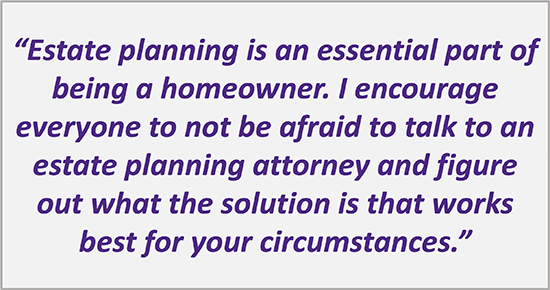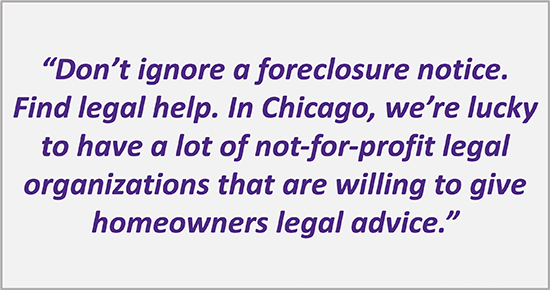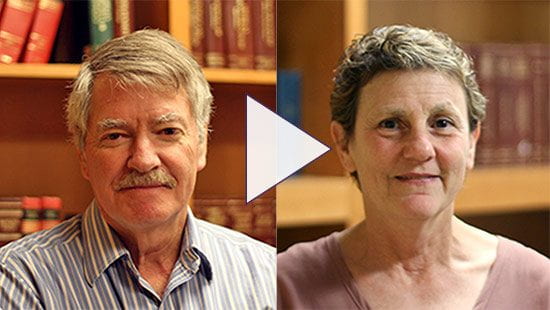In every homeowner’s life, circumstances arise where they must make a decision to transfer their property. This can be done through a sale, transfer of ownership in life, or by passing the property to a family member through a will.
Separate from the desire to transfer their property, homeowners must also be aware of the risk of foreclosure and eviction as a result of failure to meet their legal and financial obligations as homeowners.
In this module, you will learn:
- The process of transferring ownership of property through a will;
- The risks of foreclosure and eviction; and
- Resources available to avoid foreclosure and eviction.
You can download a document summarizing the key takeaways from this module here: Module 4_Reverse Mortgage Fraud_Key Takeaways
Interview: Professor Kim Kamin, Principal at Gresham Partners, LLC
Kim Kamin is a Principal at Gresham Partners, LLC. At Gresham, Ms. Kamin serves as Chief Wealth Strategist, leading Gresham’s development and implementation of estate, wealth transfer, philanthropic, educational and fiduciary planning activities.
Key Takeaways
- Ways to transfer your property to your children or selected persons include transferring at death via a will or transferring the property into a trust via transfer at death titling.
- Estate planning is an essential part of homeownership. Hiring an attorney is an important way to make sure that your property is transferred to the party that you want to inherit the property.

Interview: Professor John Elson and Professor Laurie Mikva, Northwestern Pritzker School of Law
John S. Elson, Professor of Law Emeritus, has been a member of the Northwestern faculty since 1976. He has taught courses in clinical practice, civil rights litigation, civil procedure, and trial practice. His major areas of interest in research and litigation have been education, civil rights, and attorney-client relations.
Laurie Mikva, Clinical Assistant Professor of Law, is the Director of the Civil Litigation Clinic at Northwestern Pritzker School of Law. Along with her students, she represents tenants who are facing eviction from federally subsidized housing. Professor Mikva has organized numerous panels on the importance of pro bono, including perspectives from both legal aid organizations and law firms.
Key Takeaways
- Foreclosure occurs when a homeowner fails to make the necessary payments under their mortgage and the lender seeks an order from a court to sell the home and evict the tenants.
- “Common violations of a lease that may lead to a landlord seeking eviction can include failure to pay rent, playing music too loudly, or violating other rules and conditions of the lease.
- Organizations such as Legal Aid Chicago and Lawyers Committee for Better Housing can provide homeowners with legal services in the event of foreclosure and eviction.

Additional Resources
- Cook County Clerk: How to Check Your Deed
- Attorneys’ Title Guaranty Fund, Inc.: Transfer on Death Instrument – Advantages and Disadvantages
- Illinois Legal Aid Online: Transfer on Death Instruments
- Illinois State Bar Association: Your Guide to a Living Trust
- Illinois Legal Aid Online: Written information, forms, and links to other resources
- Legal Aid Chicago: Free legal services for a wide variety of civil matters, including eviction and foreclosure
- Greater Chicago Legal Clinic: Programs for help with foreclosures and tax deeds
- Chicago Volunteer Legal Services: Program for tenants facing eviction due to a foreclosure and COVID-19 mortgage relief
- Rentervention: Limited attorney advice by phone or email
- Illinois Free Legal Answers: Legal advice online for Illinois residents
- Illinois Legal Aid Online: A will as a legal document to explain my wishes after I die
- Illinois Legal Aid Online: Being sued for mortgage foreclosure
- Illinois Legal Aid Online: Responding to a mortgage foreclosure case


